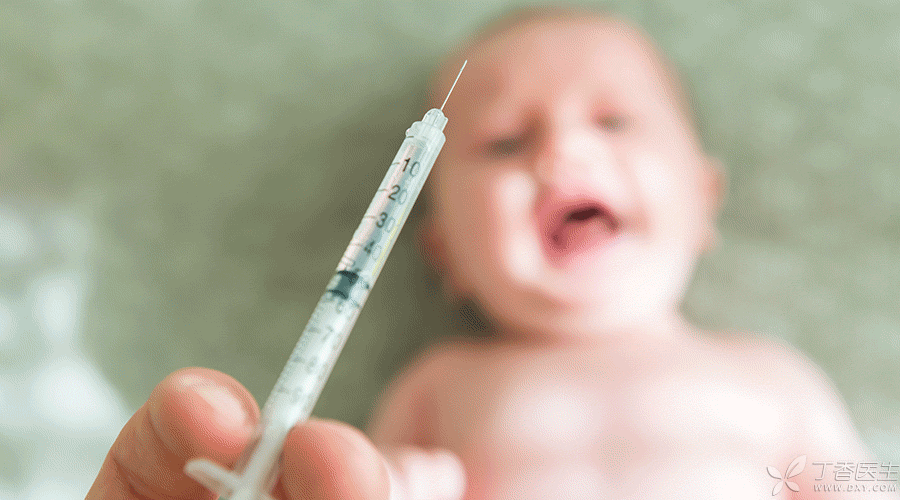
I believe Dr. Clove does not need to say much about the importance of getting vaccines on time. However, when vaccinating their babies, they will always encounter various problems:
Work is too busy, can the vaccination time be adjusted?
There are so many vaccines, which is better?
Don’t worry, Dr. Clove will answer your questions.
Question 1: The vaccination time is late. Does it affect the baby?
There is a very appropriate analogy to this question: if you don’t wear a safety belt when getting on the bus, will it have what influence?
Vaccination is actually tying a safety belt to your health. Before there is an accident, tying the safety belt at any time is fine, which is considered to be a remedy. Similarly, vaccination at any time before contracting a disease is fine, which is considered to be a victory over the disease.
Therefore, the crux of the problem is that car accidents or diseases come unexpectedly, and parents cannot predict when they will come. What we do is to take safeguard measures as soon as possible-wear seat belts or get vaccinated.
Question 2: The vaccination time is too late. Do you need to start the replenishment again?
For routine vaccination, the general principle of supplementary vaccination is: a few needles are missing and a few needles are supplemented, and there is no need for heavy supplementary vaccination.
Only a very small number of vaccines need to be replenished. For example, a typhoid vaccine used in the United States, some experts suggested that if the required doses cannot be completed within one cycle, it needs to be replenished.
Question 3: Some vaccines can be stopped after a certain age?
There is. For example, rossickness vaccine is not vaccinated over 4 years old, Haemophilus influenzae vaccine is not vaccinated over 5 years old, hand-foot-mouth vaccine is not vaccinated over 5 years old.

Question 4: There is a vaccine that took one month to take. Is it necessary to postpone the time for taking this vaccine by one month?
Not necessarily, it mainly depends on the shortest vaccination interval of the vaccine, and the specific situation is analyzed.
Different vaccines have their own shortest vaccination interval. For the same vaccine, the shortest vaccination interval may be different for each shot. The time of each shot should exceed the shortest vaccination interval for this shot.
Of course, the doctor will help the baby control the shortest vaccination interval, and parents do not need to worry too much.
Question 5: Does postponing one vaccine affect the other?
There is no effect between different vaccines. Vaccine A is delayed and vaccine B does not need to be delayed.
Question 6. I’m going on a business trip soon. Can I take my children to get vaccinated before I go on a business trip?
You cannot vaccinate in advance, you can only postpone vaccination.
Scientifically speaking, one day in advance and three days in advance will not affect the effect and safety of the vaccine, but if it is allowed to do so, it will violate the instructions and break the rules. If such a hole is opened, there will be more and more irregular operations, which may eventually lead to medical accidents.

Question 7: What are the differences between triple, quadruple and quintuple vaccines? Which is better?
Triple vaccine refers to a vaccine that can prevent three diseases. DPT vaccine is a triple vaccine, and mumps vaccine is also a triple vaccine. The former prevents diphtheria, whooping cough and tetanus, while the latter prevents measles, mumps and rubella.
Quadruple vaccine generally refers to the combined vaccine of DPT vaccine and Haemophilus influenzae (HIB) vaccine, but in fact there are also combined vaccines of mumps vaccine and varicella vaccine abroad, which are called quadruple vaccine in Hong Kong.
Quintuple vaccine generally refers to the combined vaccine of DPT vaccine, Haemophilus influenzae (HIB) vaccine and polio vaccine, but there are other combined forms abroad.
Combined vaccine is a disease prevention package, on the basis of ensuring the timeliness of various vaccines, it is more convenient: babies get less needles and parents get less trouble. Therefore, it is suggested to choose more vaccines as far as possible on the premise of not being short of money.
Of course, if there is no quintuple vaccine, it can be replaced by quadruple + polio vaccine. If there is no quintuple or quintuple, then DPT vaccine + Haemophilus influenzae (HIB) vaccine + polio vaccine will be used to complete the vaccination.
Question 8: A few injections of the triple vaccine were given first. I think it’s too much trouble. Can I replace it with a quadruple or quintuple vaccine?
Yes, the principle is not to exceed the number of doses of traditional vaccines.
The pentavalent vaccine consists of three traditional vaccines, namely DPT vaccine + Haemophilus influenzae (HIB) vaccine + polio vaccine, of which DPT vaccine and polio vaccine both need to be vaccinated with 4 doses. Haemophilus influenzae (HIB) vaccines require different doses according to different initial vaccination ages, with the maximum (4 doses) at a young age and the minimum (1 dose) at an older age, but 4 doses at an older age are also acceptable.
For example, if three doses of DPT vaccine have been vaccinated, then only one more dose of pentavalent vaccine can be vaccinated. However, the number of doses of Haemophilus influenzae (HIB) vaccine will not be enough. Therefore, it is necessary to supplement Haemophilus influenzae (HIB) vaccine according to the procedure of Haemophilus influenzae (HIB) vaccine after three doses of DPT vaccine.
For example, if you have already received 2 doses of DPT vaccine, you can receive 2 more doses of pentavaccine, and Haemophilus influenzae (HIB) vaccine also needs to be replanted according to the procedure.
Too much trouble to understand? It doesn’t matter, you can also master four words:
Listen to the doctor.

Question 9: In addition to the combined vaccine, there are individual vaccines of the same kind that are free of charge at their own expense. Which one should I choose?
Choose free, with only one exception, is meningococcal vaccine.
The effect of self-funded meningococcal vaccines (AC conjugate vaccine and tetravalent polysaccharide vaccine) is better than that of free meningococcal vaccines (group A polysaccharide vaccine and AC polysaccharide vaccine). If there is no shortage of money, it is recommended to use self-funded meningococcal vaccines.
Question 10: My baby should be vaccinated, but my family is always out of stock here. Can I go to other provinces and cities?
Of course.
However, if the baby is very young and travels all the way to get the vaccine, the trip itself may be detrimental to the baby’s health, which needs attention.
If you go anywhere for vaccination, you should bring your baby’s vaccination certificate so that local doctors can master your baby’s previous vaccination records and arrange follow-up vaccination in a targeted way to avoid repeated vaccination.
Question 11: Which of the self-funded vaccines are recommended for babies?
All vaccines can prevent diseases. Vaccines at one’s own expense are only paid by individuals instead of the state at present. Some of the diseases prevented by vaccines at one’s own expense are very serious and some are not so serious. According to the severity of the diseases, the importance of vaccines is ranked from top to bottom, in turn:
-
Haemophilus influenzae vaccine (including quadruple vaccine and quintuple vaccine) and pneumonia conjugate vaccine are vaccinated from 2 months old and 4 doses are vaccinated within 2 years old.
-
Influenza vaccine should be vaccinated from the age of 6 months (2 doses in the first year and 1 dose every year thereafter), and should be vaccinated from September to October every year.
-
Hand-foot-mouth vaccine should be vaccinated 2 doses from the age of 6 months, with an interval of 1 month. It can be vaccinated before the age of 5, but it should be done as early as possible.
-
For varicella vaccine, it is recommended to inoculate one dose at the age of 12 months and one dose at the age of 4 years. The shortest interval between two doses can be 3 months.
-
Meningococcal AC conjugate vaccine and tetravalent polysaccharide vaccine, of which meningococcal AC conjugate vaccine can be used to replace free meningococcal group A polysaccharide vaccines aged 6 months and 9 months; Meningococcal tetravalent polysaccharide vaccine can be used to replace free AC polysaccharide vaccine for 3 and 6 years old.
-
Rotate disease vaccine is taken from the age of 2 months, one dose per year until the age of 4.
-
Cholera vaccine, for children aged 2-6 years old, takes 3 doses within one month. However, the incidence rate of diseases prevented by cholera vaccine is extremely low, and it is generally not necessary to take it.

Question 12: Children are allergic to eggs. Can they still be vaccinated against measles?
If it is determined that there is a serious life-threatening allergy to the vaccine components, it is necessary to taboo the vaccine, otherwise the vaccination can continue.
Egg allergy is usually a rash, not a serious allergy. This level of allergy should not be used as a contraindication to any vaccine.
Before 2010, China listed egg allergy as a contraindication to measles vaccines, but after 2010, it has been cancelled.
At present, China still regards egg allergy as a contraindication for influenza vaccination, but the latest research results in 2016 in the United States show that people with egg allergy can actually be vaccinated against influenza.
Generally speaking, food allergy and antibiotic allergy are not contraindications to any vaccination, because the content of these substances in vaccines is very low and generally does not induce allergic reactions.
